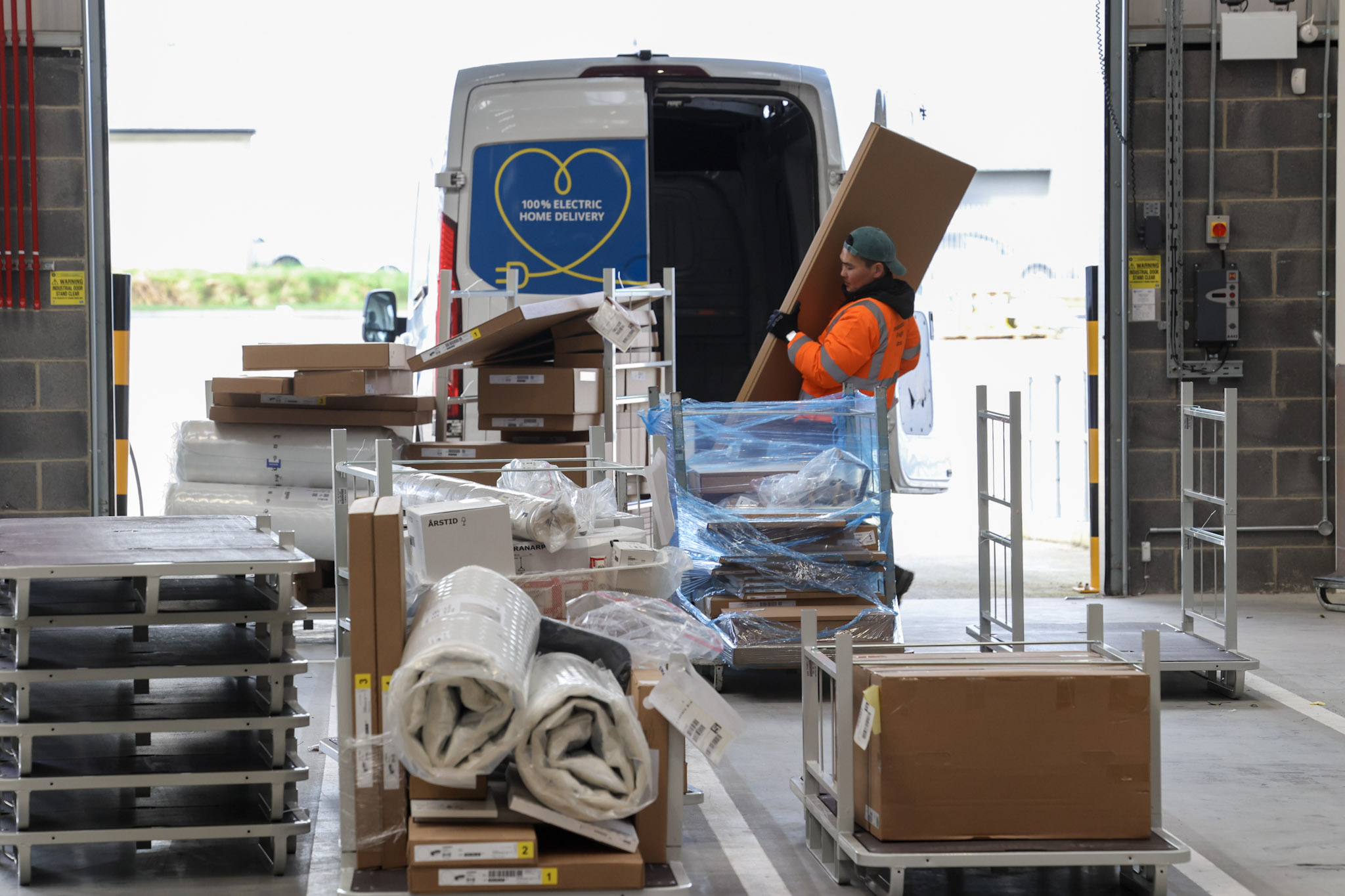Retail sales growth slowed in August as shoppers brace for the impacts of energy price rises and inflation this winter, the latest data suggests. Online and non-food sales were in decline and in-store and food sales grew relatively slowly, the latest British Retail Consortium (BRC) figures suggest. Meanwhile, Barclaycard data suggests that while spending grew slowly compared to last year, it fell compared to the previous month.
How shoppers bought online
Online non-food sales fell by 6.1% in August, having fallen by 4.6% a year earlier, according to the BRC-KPMG Retail Sales Monitor for August. That’s above the trend both over three (-6.6%) and 12 months (-14.2%). Some 38.5% of non-food sales took place online in August, down from 40.2% at the same time last year.
In-store non-food sales grew by 1.4% in August, compared to the same time last year, and by 0.3% LFL. That’s well below the 12-month growth of 33.7%.
“Online sales dipped by over 6% in August, however the locked-in step-up of online penetration remains,” says Don Williams, retail partner at KPMG.
Meanwhile, an Opinium survey of spending attitudes, carried out via Barclaycard, suggests that almost a third (31%) of 2,000 respondents are now buying and selling via second-hand clothing websites.
How shoppers bought across channels
Total sales for the month were 1% up on the same time last year – when sales had been 3% ahead of the previous year. That’s above the three-month trend (+0.7%) but lower than the 12 month average (+2.5%). On a like-for-like (LFL) basis, which strips out the effect of store – and business – openings and closures, UK retail sales increased by 0.5%.
“Retail sales growth slowed in August compared to the previous month as consumers reined in spending amidst the spiralling cost-of-living,” says Helen Dickinson, chief executive of the BRC. “While inflation in retail prices in lower than general inflation at over 10%, this still represents a significant drop in sales volumes. For the first time in recent months, clothing sales were sluggish as summer events ended and parents held back on back-to-school spending. White goods and homewares remained hardest hit, but products such as air fryers and knitwear did get a boost as thrifty consumers prepare for soaring energy bills.”
Food sales grew by 3.8% in total, in the three months to August, and 3.3% LFL, above the 12-month average (+0.8%). Non-food retail sales fell by 2% in total over the same period, and 2.6% LFL – below the 12-month average (+4%). In the month of August alone, non-food sales were in decline.
KPMG’s Williams says: “The warm weather combined with rising prices, saw August sales growth rise by 1% year on year, although volumes will have been challenged. The heatwave saw strong growth for health items such as suntan lotion, whilst food and drink sales for summer barbeques grew by 5% year on year and home accessories also saw growth for the first time in months.”
He adds: “Worryingly, August data revealed a significant fall in clothing sales – the category which has been the most robust performer this year which could signal the start of shoppers pulling back from non-essential spending.
The effect of the cost-of-living crisis
The BRC’s Dickinson says: “With some predictions of inflation reaching 20% in the new year, households and retailers are preparing for a particularly tough time ahead. As retailers face into their own rising costs from all directions, they continue to do all they can to protect customers from price rises. The new Prime Minister could help relieve some of the cost burden and ease the upwards pressure on prices, by freezing the business rates multiplier for all retail businesses next year. Without this, inflation could what an additional £800m onto retailers’ rates bills, which will inevitably lead to even higher prices for households at a time when people’s income is under unprecedented pressure.”
KPMG’s Williams adds: “As consumers return from summer holidays to an 80% increase in the energy price cap, double digit inflation and Christmas just three pay cheques away, the brakes could be firmly applied on non-essential spending for most UK households. The storm clouds are closing in as retailers brace themselves for a fall in demand – at a time when their own margins are under pressure from rising costs. Supporting customers through these difficult times will be paramount for the health of the sector as we move through the rest of this year. Doing this will require a more granular understanding of current and future customers, continual review of the cost base and focus on how to drive productivity, especially using more effective technology. It is in these areas that opportunity lies even in a challenging trading environment.”
Susan Barratt, chief executive of grocery analyst the IGD, says that its latest Shopper Confidence Index reached a record-breaking low in August, six points down from the previous month of July. “Confidence has been steadily declining over recent months but now we can really see that people are worried about their personal finances,” she says. “August has been dominated by increasing inflation, with talks of this going even higher, along with energy price increases. People are reacting – taking action now to try and get ahead. Our data shows that shoppers are investing more time in how they can save money by planning more and searching for value with private label options and seeking out discounts.”
Slowing spending: Barclaycard
Barclaycard’s analysis of spending data via the credit and debit card payments that it processes found spending rose by 4.7% In August, compared to last year. However, this was the smallest increase since March 2021, and spending was 1.9% down on the previous month of July as shoppers cut back on purchases such as clothing and overseas travel in order to afford rising household bills on the approach to winter.
Spending on essential items rose by 7.2% year-on-year, with spending up by 4.7% in supermarkets as prices continued to rise. Spending on utilities grew by 45.2% year-on-year, and fuel by 23.9%. Spending on non-essential items grew by 3.6% on last year, but shoppers spent less both on clothing (-1.9% year-on-year and -10.7% month-on-month) and department stores (-4.3% YOY/-7.7% MOM).
In a survey of 2,000 UK adults on their attitudes to shopping, 24% said they wanted to spend less on new clothes and accessories, while 37% said they were buying more from charity shops and 31% were using second-hand clothing websites to buy or sell. Optimism around the UK economy has fallen to 21% – from 26% last month and 37% last August, while confidence in the ability to spend on non-essential items has fallen to 48% and 32% are cutting down on discretionary spending in order to afford energy bills over the autumn and winter. However, 66% say they are confident in their household finances, down by 66% last month.
“The cost of living is clearly leading Brits to cut back on some non-essential purchases to ensure they can afford the increasing costs of their weekly grocery shop and household utility bills,” says José Carvalho, head of consumer products at Barclaycard. “Yet, despite these inflationary pressures, consumers have still been keen to enjoy the summer weather by eating and drinking out and going on staycations with friends and family.
“However, an energy price rise on the horizon means the majority are understandably very concerned about whether their finances can stretch far enough to afford rising household bills. Many Brits plan to continue cutting back on their discretionary spending during the autumn and winter, while adopting a resourceful approach to saving money in order to weather a challenging period ahead.”










